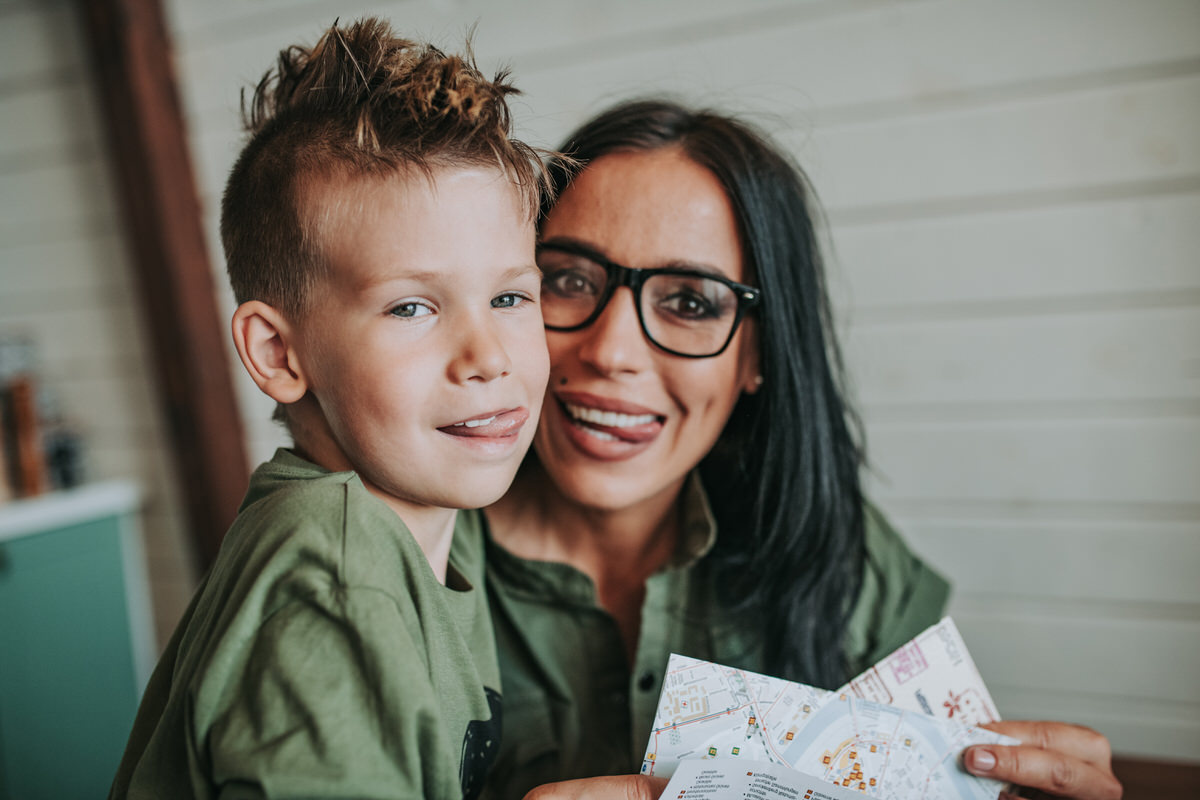Anxiety is a global problem now, and children are not exempted from this. Anxiety can affect their behavior, their physical and mental health, and their academics. Natural remedies, some anxiety management strategies, and parents’ love and care will help children overcome it. Consult the professionals in case of severe situations.
Anxiety is a pandemic, and children are not exempted from the trauma that comes with it. Since their growth process comes in phases, anxiety becomes both a one-time and recurring event in their lives.
In the last decade, childhood anxiety has marked a drastic growth and is said to affect approximately 7.1% of children aged 3-17 in the United States alone. An average child between the ages of 3 and 17 anywhere in the world either has an anxiety disorder or has once encountered one.
Just like the campaign against anxiety in adults is a massive movement, it is important to recognize the impact of anxiety on a child’s overall well-being.
Meanwhile, studies have proven over the years that neglecting anxiety in children can lead to academic constraint, social insecurity, and mental health risks.
Whether you’re a parent or a caregiver, you can explore natural remedies that can easily be integrated into your child’s routine as you help them beat anxiety.
What are the signs of anxiety in children?
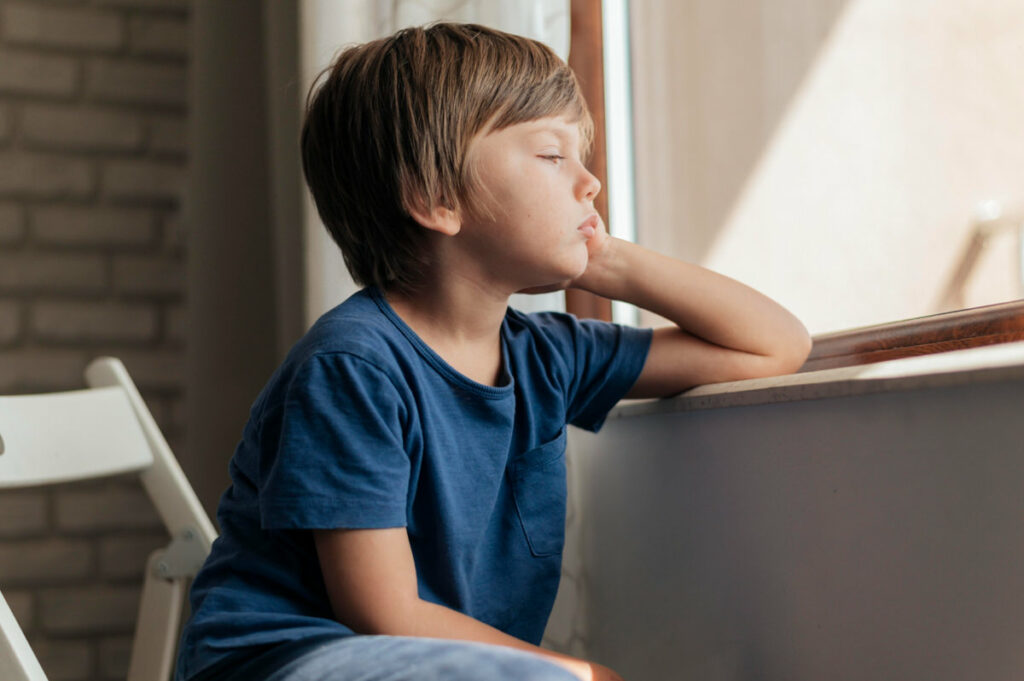
Like in adults, children manifest certain symptoms when battling with one anxiety disorder or another. These symptoms are easily detectable, and parents and caregivers should watch out for them.
They can be:
- Behavioral
- Physical
- Academic or social
Behavioral changes
Studies have proven that approximately 80% of anxious children demonstrate alterations in behavior. This makes it easier for parents and caregivers to stay on the lookout for these symptoms.
Clearly, the anxiety would exhibit noticeable behavioral changes. It could range from temperament to restlessness or even withdrawal from activities they initially found pleasurable.
If your child suddenly grows disinterested in things you know they used to love, it is enough cue to ask questions and find ways to proffer a solution while it’s still early.
Physical symptoms
One of the major myths about anxiety is that its effect is limited to the victim’s mental health. That’s far from the truth.
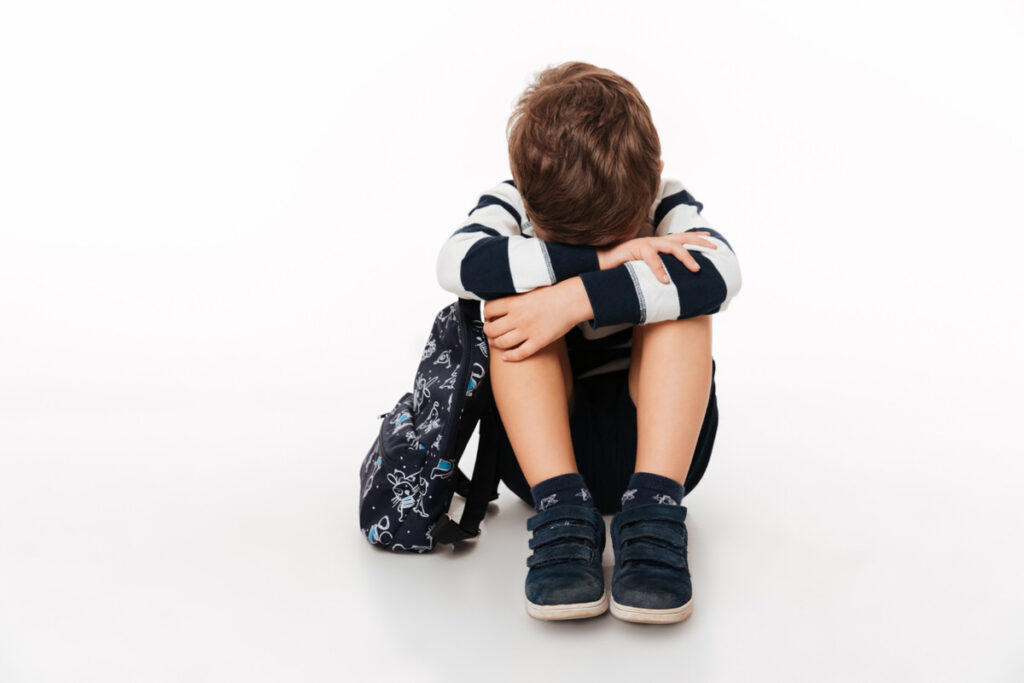
Beyond reasonable doubt, certain anxiety disorders have tangible physical effects on the concerned victims.
For children, the common physical symptoms of anxiety, according to studies over the years, are headaches, stomachaches, or muscle tension.
These symptoms are physical manifestations of anxiety in children, and parents are expected to identify them early.
Academic/Social impact
A study from the Journal of Abnormal Child Psychology revealed that anxious children have a higher tendency to face academic challenges.
This stems from the restlessness and mental discomfort that comes with being anxious and could result in an increase in rates of absenteeism as well as difficulty concentrating in class.
Outside academics, the Journal of Anxiety Disorders has equally admitted that around 50% of children with anxiety disorders face roadblocks in making or maintaining new friendships.
Anxiety can make a happy and social child suddenly become anti-social and bitter.
In all these, it is important to understand the academic and social impacts of anxiety on children.
What are the triggers of childhood anxiety?
Anxiety disorders have triggers. These factors either upset or worsen their effects on the body and mind of the victim.
For children, these triggers can lead to traumatizing experiences.
As a parent or caregiver, identifying what triggers anxiety in your child or ward is one of the catalysts for effective intervention.
Common triggers for childhood anxiety include academic pressures, family changes, or social challenges.
However, it is important to understand that anxiety triggers vary per child. This accounts for the need to be certain and not settle for assumptions while identifying these triggers.
You can address anxiety triggers with the following steps:
- Observe Behavioral Patterns: Regularly monitor your child for any changes in behavior. Look for signs of anxiety and note any patterns that emerge.
- Encourage Open Communication: Be accessible to your child. Create an environment where they feel comfortable sharing their feelings and concerns.
- Keep a Journal: Document observations and incidents that might trigger anxiety, which can help identify patterns.
- Consult with Teachers and Caregivers: Engage with those who interact with your child regularly to gain insights into their behavior in different settings.
- Engage the Child: Involve your child in discussions to help identify what triggers their anxiety. This can empower them to understand and manage their feelings better.
Natural anxiety remedies
The need for intervention for your child would certainly lead to finding alternatives. It is recommended that you seek the guidance of professionals. However, natural remedies, under the guidance of an expert, have been proven to be effective in managing anxiety in children.
Natural remedies can come in the form of:
- Mindfulness exercises
- Herbal options
- Lifestyle change
Mindfulness exercises
Settling for mindfulness exercises provides a plethora of options for parents and caregivers to choose from, depending on both the needs of their children and the severity of their anxiety disorder.
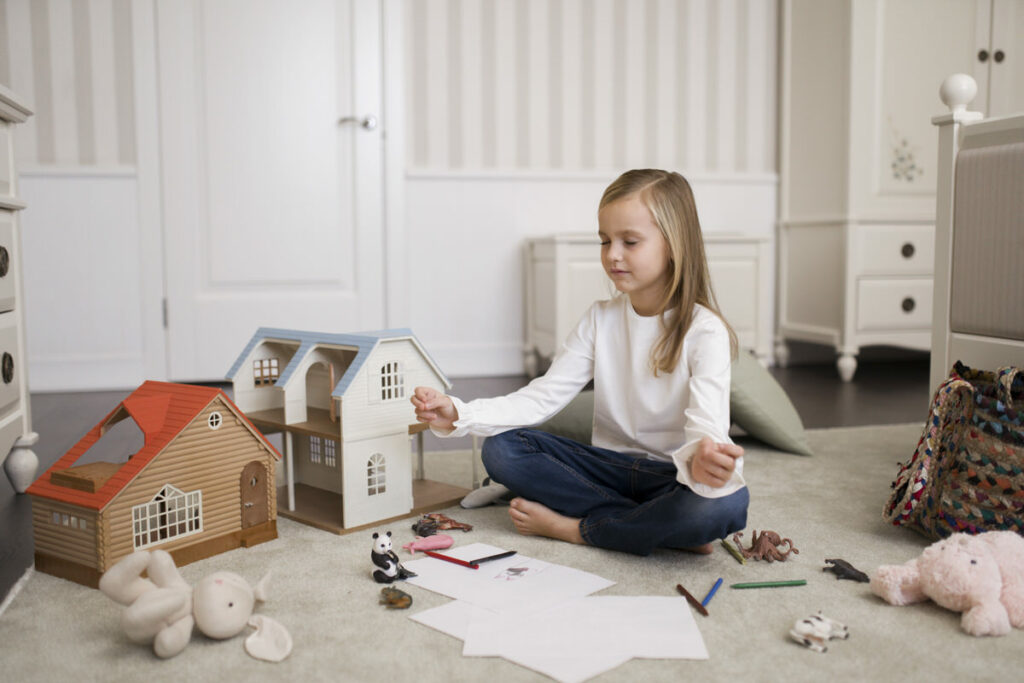
Examples of age-appropriate mindfulness exercises for children include breathing buddies, guided imagery, body scans, mindful coloring, sensory play, cloud watching, or even yoga.
- Breathing buddies involve using a stuffed animal or toy to practice deep breathing, which teaches children to focus and calms their mind.
- Guided imagery can transport children to a peaceful place in their imagination, reducing anxiety by distracting them from stressors.
Herbal options
Various studies conducted over the years have consistently proven the effectiveness of different herbs in addressing anxiety in children.
These herbs, renowned for their adaptogenic qualities, possess soothing effects that can offer vital assistance to children dealing with anxiety.
They can be easily obtained in the form of teas, supplements, essential oils, creams, capsules, or powders.
Common herbal remedies include lavender, chamomile, lemon balm, valerian root, passionflower, peppermint, lime blossom, and many others.
- Lavender is known for its soothing scent, which can help in calming nervousness and improving sleep in children.
- Chamomile tea has mild sedative effects that can ease anxiety and induce relaxation.
- Lemon balm may help reduce stress and anxiety, promoting a sense of calm in children.
It’s important for parents and caregivers to consult professionals to help regulate the use of these herbal remedies, as the wrong dosage or abuse can result in complications or irritation.
Lifestyle change
Since anxiety has multiple triggers, changes in lifestyle have, over the years, been an effective way to manage childhood anxiety. A change in lifestyle can positively affect children battling with anxiety and make other forms of intervention more effective.
Changes in lifestyle include a reduction in screen time, healthy eating habits, adequate sleep, and social and educational support.
- Reducing screen time helps minimize overstimulation and improve sleep quality, which is crucial for managing anxiety.
- Healthy eating habits ensure balanced nutrition, which is essential for maintaining a stable mood and overall mental health.
How can parents help?
The rise in childhood anxiety is a worldwide issue, and addressing it starts with parents and caregivers taking the initiative to learn effective strategies that can assist their children in managing the challenges posed by anxiety.
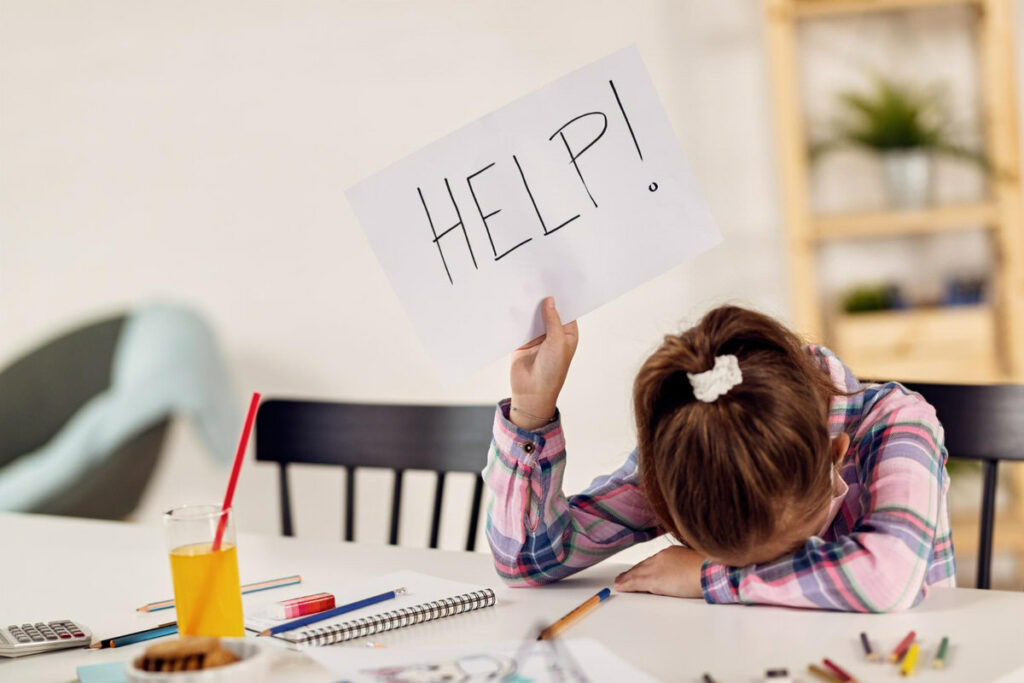
As parents and caregivers get used to easily detecting early symptoms of anxiety in their children through their behavioral changes, it is equally important that they learn to know the triggers of anxiety in relation to the personality of their children.
Childhood anxiety is a phase, and it is expected of every parent and caregiver to show genuine love and care to their children and wards during this period.
FAQs
How prevalent is childhood anxiety?
According to the CDC’s National Health Interview Survey, approximately 7.1% of children aged 3-17 in the United States experience anxiety in the US alone.
It’s also believed that an average child anywhere in the world within the age range of 4-17 has experienced an anxiety disorder at some point in his or her life.
Can anxiety in children be hereditary?
Yes, anxiety can be inherited. There is evidence proving a genetic component to anxiety disorders, meaning it can run in families.
How can parents identify anxiety triggers in their children?
Observing behavioral patterns, maintaining open communication, and consulting with teachers or caregivers are effective ways to identify triggers.
At what point should parents or caregivers seek professional help for their child’s anxiety?
It is advisable to get professional help when anxiety poses a risk on the daily life of the affected child. Also, it is not always a good thing to wait for the symptoms to get complicated before asking for help.
Can natural remedies be used in conjunction with professional therapy for childhood anxiety?
Yes, natural remedies can complement professional therapy. However, it is necessary to consult professionals to get access to both safer and more comprehensive approaches to combining these two strategies.
References
- https://www.nhs.uk/mental-health/children-and-young-adults/advice-for-parents/anxiety-in-children/
- https://www.cdc.gov/childrensmentalhealth/depression.html
- https://my.clevelandclinic.org/health/diseases/anxiety-in-children
- https://www.yalemedicine.org/conditions/childhood-stress-and-anxiety
- https://www.mayoclinichealthsystem.org/hometown-health/speaking-of-health/9-tools-for-helping-your-child-manage-anxiety
- https://childmind.org/article/detecting-childhood-anxiety/
- https://www.health.harvard.edu/blog/anxiety-in-children-2018081414532
- https://www.youngminds.org.uk/parent/parents-a-z-mental-health-guide/anxiety/
- https://www.psychologytoday.com/us/basics/anxiety/children-and-anxiety
- https://www.cnn.com/2022/05/16/health/anxiety-early-signs-in-kids-wellness/index.html

